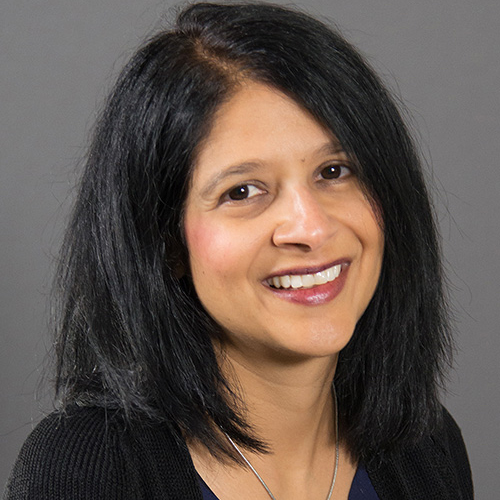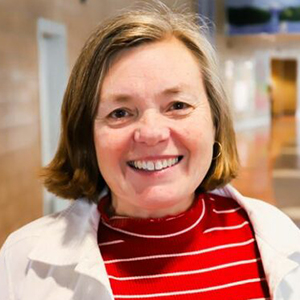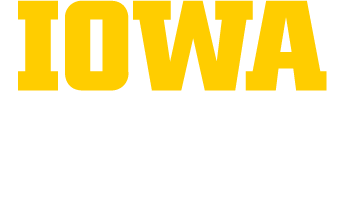Webinars
Inspired by Mihalyi Csikczentmihalyi's concept of flow, the Belin-Blank Center's FLOW stands for Focused Learning On your Work . These experiences are designed to engage educators with the most relevant issues in serving the needs of talented and gifted students in a convenient setting. FLOW experiences will use the webinar format, utilizing Zoom for participation. Instructions for connecting to Zoom will be sent upon registering.
The best moments in our lives are not the passive, receptive, relaxing times… The best moments usually occur if a person's body or mind is stretched to its limits in a voluntary effort to accomplish something difficult and worthwhile.
Current FLOW Opportunities
What Research Tells Us About the Importance of Teachers in the Career Development of Rural Students
Presenter
 Dr. Saba Ali
Dr. Saba Ali
The Integrated Acceleration System:
Making Decisions About Grade-Skipping
The Integrated Acceleration System, an online tool developed by leading researchers in gifted education, guides participants through the integration of information about acceleration. Informed by decades of research, the Integrated Acceleration System includes all the major factors to consider and produces a report about readiness for one of the many forms of acceleration, including grade-skipping, early entrance to kindergarten, subject acceleration, and early entrance to college. The Integrated Acceleration System is designed for users in the United States. However, the flexible framework can be applied to international educational systems.
The Belin-Blank Center offers several webinars to assist in the use of the Acceleration System.
View Webinars
Previous FLOW Opportunities Available for Purchase
To purchase a recording of a previous webinar for $30 please contact the Belin-Blank Center at belinblank@uiowa.edu.
Migrating Monarchs and other Free Flights of Fancy for your Fall
This webinar will share ideas and resources that educators can implement as enrichment opportunities with their gifted and talented learners. Right now, we’re seeing migrating monarchs; students can help tag migrating monarchs and/or learn more about ways to protect these beautiful visitors. The session will provide recommendations for free professional development options for educators as well resources for your students, in a variety of content areas. Participants are encouraged to share their own resources! We hope you can join us.
Free Asynchronous Content
Presenters
 Special guest presenter, Stacey Snyder, will share resources for you to consider this fall. Stacey is a veteran educator of gifted learners as well as a National Geographic Certified Educator. Stacey is the Iowa Conservation Teacher of the Year for 2023!
Special guest presenter, Stacey Snyder, will share resources for you to consider this fall. Stacey is a veteran educator of gifted learners as well as a National Geographic Certified Educator. Stacey is the Iowa Conservation Teacher of the Year for 2023!
IEP or 504 Meeting: What you should know
This interactive webinar presented by the Belin-Blank Center Assessment and Counseling Clinic targets parents/guardians who might have questions about these meetings. Highlights will include: defining key terms, differences between an IEP and a 504 plan, common accommodations and modifications (including tech-based), and how to prepare for the meeting. There will be time for questions!
Jenny Feng, M.A.
Creating a Neurodiversity-Affirming Classroom for 2e Students
Twice-exceptional (2e) learners are both gifted and have a neurodivergent diagnosis (like autism, ADHD, or a learning disability) and need support for both their advanced cognitive abilities and areas of struggle. This webinar will discuss what we know about twice-exceptional learners and their needs so teachers can help their 2e students find success academically, socially, and emotionally by creating a neurodiversity-affirming classroom environment.
Emily Kircher-Morris
Online Teaching and Learning in a Covid-19 World: Technology, Tools, Resources, and Strategies for Success
COVID-19 has brought the need for effective online teaching and learning into sharper focus than ever before. How can teachers minimize the challenges that some advanced learners face online (e.g., distractions related to almost infinite online resources and underdeveloped self-regulation)? Which tools can facilitate effective communication with gifted learners and among students with similar abilities / interests? Online learning can maximize the efficacy of self-directed learning and independent investigations for gifted/talented students. Learn about strategies, tools, and resources for facilitating online teaching and learning.
Dr. Jenelle Miller
Problem-Based Learning
Problem-Based Learning (PBL) is a collaborative process that immerses students in real-world, complex situations, allowing students to both deeply understand the content areas associated with the situation and improve skills in research, higher-order thinking, decision making, and more. Participants will learn more about the fundamentals of PBL that engage students and enhance learning.
Presenter: Shelagh Gallagher
The Best-Kept Secret in Gifted Ed: Above-Level Testing
Above-level testing is one of the best-kept secrets in gifted education. It's an extremely powerful way to help us find the students who need gifted education services and to match those services to their academic needs. Learn about useful tests and other tools. What do the results mean? What options do students have based on test results and other information? How can Talent Searches supplement the information gathered in school? What resources are available to educators and students? A few hours invested in understanding students' capabilities can provide a rich set of information that helps us truly tailor their educational experiences.
Presenter: Dr. Ann Lupkowski-Shoplik
Identifying and Serving Gifted, Advanced, and High-Ability Hispanic/Latino Students: Moving the Cause Forward
This Webinar will focus on identifying and serving this unique, intra-ethnically diverse group of students. Implications, recommendations, and practices for learning, teaching, and leading will be shared. When programs, services, and advocacy are part of a dynamic infrastructure designed to meet the needs of our best and brightest Hispanic/Latino students, opportunities for experiencing success know no boundaries.
Presenter: Dr. Jaime Castellano
Nurturing the Potential of Twice-Exceptional Students: Practical Guidelines for Understanding and Supporting 2e Students
The commonly used term for gifted students who also have disabilities is “twice-exceptional,” a simple phrase that does little to suggest the complexities in meeting the needs of twice-exceptional (2e) learners. Participants will explore ways of better understanding and meeting the needs of 2e students, including developing academic strengths and facilitating social-emotional growth.
Presenters include:
- Alissa Doobay, Supervisor, Psychological Services, Assessment and Counseling Clinic, Belin-Blank Center
- Joy Goins, Staff Psychologist, Assessment and Counseling Clinic, Belin-Blank Center
- Megan Foley-Nicpon, Associate Director for Research and Clinic, Belin-Blank Center, and Associate Professor, Counseling Psychology Program
- Susan Assouline, Director, Belin-Blank Center, and Myron & Jacqueline Blank Professor of Gifted Education
Grading for Gifted Learners: Fair Isn’t Always Equal
The National Association for Gifted Children has provided national standards for Pre-K through Grade 12 Programming Standards in Gifted Education. Standard 2, Assessment, notes that "Students with gifts and talents demonstrate advanced and complex learning as a result of using multiple, appropriate, and ongoing assessments." Pre-, formative, and post-assessments are all important when providing appropriate programming for high-ability learners, but as Rick Wormeli has noted: "Differentiated instruction is a nice idea, but what happens when it comes to assessing and grading students? What's both fair and leads to real student learning?" Following the Webinar, those who enroll in the workshop will focus on readings from Wormeli's book, Fair Isn't Always Equal (required for workshop).
Acceleration: From A Nation Deceived to A Nation Empowered
A Nation Deceived, the two-volume publication that explored the strong research basis supporting the acceleration of gifted and talented learners, is ten years old! Updates to the research are available in the new publication, A Nation Empowered, due out in 2015. The workshop reviews new findings, as well as helping participants develop appropriate policy for their schools, districts, and/or states.
Family Issues and Giftedness
“Gifted children have gifted parents!” This statement implies the giftedness is embedded in family dynamics. This webinar will explore a) how family interactions are related to giftedness; b) give an overview of methods that explore these interactions; and c) give suggestions how counselors and educators can effectively work with families of gifted children.
Counseling in Gifted Education: Where We’ve Been and Where We’re Going
Counseling is considered an integral part of educating the gifted child. This webinar session will a) provide a historical overview of counseling the gifted; b) highlight 10 major areas of research related to counseling the gifted individual; and c) apply these findings via recommendations for practice for counselors, teachers and other educators.
Anti-Intellectualism
Support for gifted and talented programs and services has not been consistent throughout history in the United States. One of the challenges is the continuous sense of anti-intellectualism, even though that same hostility is rarely apparent toward those who excel in sports, dance, art, or music. Additional challenges have included a belief that gifted programs are "elitist," and that talented learners will "make it on their own."





